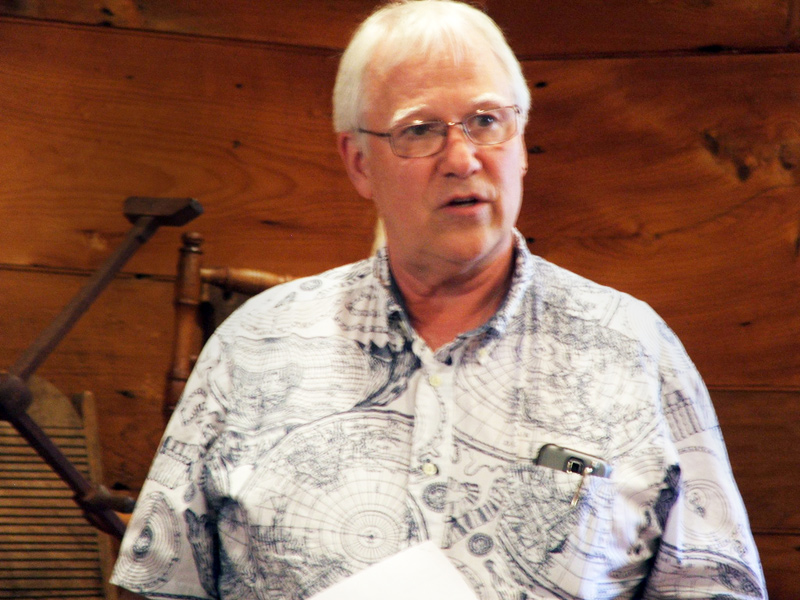A Christmas Arrival

by Jonathan Tucker
It took just under six weeks (5 weeks and 5 days) for the merchant ketch Unity to cross the North Atlantic. The Unity set sail from London on November 11, 1650 its hold full of cargo and about 150 Scottish prisoners from the battle of Dunbar, and arrived at the dock in Charlestown on December 21, 1650.
That winter, it had already been snowing heavily in New England, and the weather somewhat delayed the transfer of prisoners to their new indentures. Boston area trader Thomas Kemble was principally responsible for disposition of the Dunbar Scots. He owned ships and was intimately involved in colonial ventures up and down the New England coast. He first quickly disposed of the Dunbar prisoners who were bound for the Lynn iron works, by prior arrangement.
On December 24, 1650—three days after they had arrived in Charlestown—the Dunbar Scots bound for Hammersmith (the Lynn iron works) and its surrounding communities were sent north from Boston to Lynn by boat. A coastal trader named William Robinson was paid for transporting them. On that short trip by water (about 10-12 miles along the coast), one of Scots prisoners—a man named Davidson, who had been a schoolteacher back in Scotland—died aboard the transport ship. There is a record of the bill for his winding sheet.
The Puritan English colonists deliberately did not celebrate the Christian high holiday in celebratory “popish” ways, so sending indentured men on a boat to their workplace on December 24, 1650 (Christmas Eve day) did not occur to them as anything but ordinary. Micum’s brother Robert McIntire was on that boat–he was indentured to Thomas Wiggins, an iron works specialist who worked at Hammersmith. It is possible that their younger brother Philip McIntire was also aboard–his indenture had been sold to a farmer or merchant who operated near the iron works.
Disposing of the other prisoners, including Micum, took more time. Some may have been auctioned off at the square in front of or inside the Three Cranes Tavern in what is now City Square in Charlestown (only the foundation is visible there now). The building had been owned by the Winthrop family, and so had served for a time as the seat of government for the Bay Colony. At the time the Dunbar prisoners were being sold off, the building was owned by the Long family, and was being operated principally as a tavern.
In wintry Charlestown, the indentures of the remaining prisoners were sold as buyers could be found. Micum’s indenture and those of six other Scots were purchased by merchant shipper and frontier entrepreneur Valentine Hill, a friend and sometime partner with Thomas Kemble. Hill had probably been alerted about the pending availability of the Scots’ labor by Kemble.
Valentine Hill was in the process of developing a community at Oyster River (now Durham, NH). We do not yet know exactly when the purchases were made, or when Micum and his fellow indentured Scots were transported north to the mouth of Piscataqua River, where the boat would have turned west across the inner Great Bay to the tributary Oyster River and then upstream, dropping off Hill’s men at the crude landing on the north side of the bank at end of the river’s tidal reach.
Given Hill’s likely advance notice, the Scots arrival in Oyster River would likely have still been in winter, and possibly still within the Yule season, around the time of Hogmanay (Scottish New Year). When Micum set foot on the frozen shore at the Oyster River settlement, he had arrived at his first ‘home’ in the New World, where his new life would take root. The Dunbar Scots with him included Henry Brown, Thomas Doughty, Robert Junkins, James Orr, and others. For Micum and the other Scots, Yule in 1650 was a memorable holiday.
As we sit in our homes this holiday season, warm and safely isolated from disease and the extremes of weather, we should consider the generations of men and women who came before us, and the winter solstice holidays they endured and at times doubtless enjoyed. We have so much to be thankful for, and we owe them a debt we cannot repay beyond keeping their memories alive by telling their stories.
May you and yours have a wonderful Yule and the happiest of Hogmanays! Stay home, stay safe, and bear in mind the MacIntyre clan motto “Per Ardua”–through difficulty. We and those who came before us have been through hard times before, and we will survive this as well, together in our hearts if not yet in one another’s company.
Comments are Closed